Gadi Izenkot: "Reality must be changed, because it leads to one state, which is the destruction of the Zionist dream"
In the first in-depth interview since his release from the IDF and just before the end of the cooling-off, former chief of staff Gadi Izenkot talks about everything: what worries him more than Iran and Hamas, dealing with politicians and the handling of the Elor Azaria affair.
Part One
Ben Mercury
21/01/2022
Friday, 21 January 2022, 13:39 Updated: 14:05
Share on Facebook
Share on WhatsApp
Share on Twitter
Share on Email
Share on general
Comments
Comments
Iran is rushing to the core, Hezbollah is hoarding and firing rockets, Hamas is trying to ignite the territories, and the Bedouin in the south are igniting the Negev, but what worries Gadi Izenkot, the 21st IDF Chief of Staff, is the social and internal cohesion of the State of Israel.
"I think the rift in Israeli society and mutual harassment, the decline in governance, the decline in trust in state institutions, the courts, crime - all of these are the biggest threat to the future of the state," he said in an extensive interview with Maariv. More than Hamas, Iran, Hezbollah?
"I do not stick to external threats, I deal with them all my life. The national resilience of Israeli society is the most important component of national security. I heard today a 73-year-old woman come to Natan Zehavi and say she is exactly the state age and she is worried about her future. Is at least 51% of national security.the most important component.
"People are worried not because of the Iranian threat but because of the internal weakening, the loosening cohesion, the inequality, the frictions between the sectors, the non-absorption of entire publics into society. It should be understood that there is no national security without social solidarity, and no social solidarity without national security. Gurion, the melting pot, is in trouble.
Izenkot (Photo: Reuven Castro)
"When I enlisted in the army in 1978, 88% of those required to enlist (Jews and Druze) enlisted in the IDF. When my youngest son enlisted in July 2015, 67% enlisted. And there's another syndrome: among those who enlist, more and more guys say we'll go for meaningful service, cyber, the 8200, the technology units. The willingness to go to war, to kill and be killed, to take risks, is on the decline.
"We must ensure that boys from Kiryat Shmona, Tiberias, Hatzor, Ofakim and Eilat have equal opportunities. I was born in Tiberias, grew up in Eilat, headed the army. I see the data of those who come to serve in the advanced technology units. I would like to see equal and appropriate representation there. I believe I'm not excited about the IDF's move south. I pushed it as a flagship project. "
Chief of Staff Kochavi fears it will cause a brain drain.
"It will not cause anything. The intelligence and technology people will go down south because it is a challenge, it is attractive, they will be honored and they will serve Balakit without a problem, even if the train is not so fast. I say it also hurt five who served in the army, two of them in 8200, one on Mount Hermon. If my daughter drove to Mitzpe Shelegim for a year and a half, they would drive to Lakit, which is 45 minutes from here. It's vital. "
So what is your second concern? The Iranian nuclear issue? The threat of Hezbollah rockets?
" Jabotinsky delivered his 'Iron Wall' speech 99 years ago. A state has been established here and has already gone through seven wars. Israel is an invincible state. I do not see a military force that can defeat it. A diverse force has been built here, and I do not see an enemy who knows how to conquer the State of Israel. A nuclear bomb in Iran could change that reality, but we are not there yet.
"Have we really built an iron wall? On the one hand there are Egypt, Jordan, the Abrahamic Agreements and quite a few countries around that accept us. But this is half the glass full. "The Palestinian will give up 100% of Judea and Samaria, and the Syrians will not give up the Golan, despite the current hiatus."
So I did not understand what your second concern is.
"My second concern is that Israel does not have a security concept. One of the consequences of this is the possibility that we will reach, without our will, a one-state solution and it will be a disaster. See this as a fundamental and very serious flaw that affects the entire pattern of action of the state.Add to that the state has no constitution and the fact that elected officials treat the Basic Laws as if they are a watch list in Shizafon, and you will get concern.
"It cannot be that every Monday and Thursday there are basic laws to serve a political conjuncture. Connect to this the fact that the State of Israel has no national security concept, so the defense minister, prime minister and finance minister can sit for 15 minutes, decide on the defense budget and transfer billions from here to there without "To understand the whole of national security, without seeing the big picture, without analyzing the significance of the decision. It is a fundamental flaw that I have seen in all the positions I have held since I was military secretary."
The last Gurionist son
In my iniquities, to me the concept of "perception of security" sounds superfluous. Grinding water. what is it Anyway?
"Let's start from the beginning. When Golomb died and the defense veteran moved to Ben-Gurion in 1946, he knew nothing. He did seminars, read Churchill's writings and was greatly influenced by him, learning the security challenges of the country on the way. In 1948 the Chief of Staff." Yaakov Dori is lying in a hospital in Haifa, the deputy chief of staff is suspected of being a foreign agent, and the person conducting the war is Chief of Staff Yadin. Ben-Gurion quarrels with Yadin over battles in Latrun, Yadin tells him, "You are a statesman, give orders and be silent, you do not know how a mortar works."
We won the war despite the quarrels.
"True. In 1953, after Yadin resigned due to cuts in the defense budget and the closure of the military laundromat and a military hospital in Tel Hashomer, Ben-Gurion took a five-week vacation and wrote the so-called '18 points of Ben-Gurion. ' Perception of security There is nothing. Since then, there has been a myth that Ben-Gurion wrote the concept of security of the state. That is not true.
" We will jump decades forward. Shaul Mofaz, in a brave move, appoints Dan Meridor, who is forming a team with quite a few professionals, Gabi Ashkenazi and many others. They wrote very serious work, submitted it and since then it has been frozen somewhere. "
Listen, do not be offended, but it seems to me that the country somehow survives without a sense of security.
"This is a superficial vision. Let's continue, Bnei Gantz is putting together a team to write a document. He calls it the IDF 2025, but he is not attacking it.
When I take office, I write the IDF strategy file. I make a classified version, distribute it, and publish an unclassified version to the public. Boogie Ya'alon and Benjamin Netanyahu really did not like it.
"I told them, so write a security statement.
I can not run a NIS 44 billion and hundreds of thousands of people organization without looking forward to something.
I need to plan a multi-year plan for five years, for that I need a 20-30 year look ahead when it comes to building power.
Need an orderly perception.
So write. "
Netanyahu (Photo: Knesset Spokeswoman Noam Moskowitz)
It's getting interesting. And what's going on?
"Netanyahu is sitting with the military secretary Toledano, writing a paper and presenting it to the General Staff in the last months of my tenure. The General Staff Forum tells him that it is a good paper. I, in private, tell him that it is a good paper, but it is not really a security concept. It is something completely different. Israel has a sense of security and I see this as a huge shortcoming. "
So it's time for you to explain to me why.
"Ask yourself for a moment what the national goals of the State of Israel are. You will seat the prime minister, the defense minister, the foreign minister, the finance minister, the justice minister in five rooms. Give everyone a piece of paper and a pen and write 'Israel's security concept is' "What is the strategic concept vis-à-vis Iran, in the Palestinian arena, what is the national resilience of Israeli society, what is the priority. Everyone will write something different."
What did you do to solve it?
"When I finished the job, I asked if they wanted me to write the concept of security. They said to me: No, thank you. We sat down, Gabi Siboni and I wrote a document called 'Guidelines for the concept of national security.' Security in all areas such as economy, energy, immigration, population dispersal, causes of war, etc. "
How can an agreed security concept be established when there is no agreement on anything?
"Because in order to run a state, you have to act in an orderly manner. Take the Palestinians. How do you manage the conflict? Are we striving for a two-state solution? To differentiate between Gaza and the Palestinians? The chief of staff in Israel has tremendous power. What is the power exercise policy? Aviv Kochavi has, in my opinion, already replaced four or five defense ministers.
"Everyone comes with a different perception, because there is no unified and cohesive perception. When you do something, in light of what are you doing? There is no general guide, a kind of 'manual.' "The government has never sat down and outlined an orderly national security policy. How can a policy and a state be run like this?"
Crimson (Photo: Flash 90, Hadas Porush / Flash 90)
When everyone strives for something different, it is impossible to formulate a uniform policy.
"It can be done on two floors. The top is the overall security concept on which agreements can be reached. On the document I wrote, both the left and the right can agree. Downstairs, national security policy. There can be disagreements here. Take the national assessment of the National Security Headquarters. In 2015. It was signed by Yossi Cohen. There are strategic goals, it says that we must strive for separation from the Palestinians and a two-state solution. Because Israel acted in exactly the opposite direction: weakening the PA, strengthening Hamas.
"GSS chief Nadav Argaman spoke about this when he left office. He explicitly warned that the lack of dialogue between Israel and the PA leads to its weakening and strengthening of Hamas, he warned that relative calm in Judea and Samaria is deceptive and Israel must find a way to cooperate with the PA and strengthen it."
Do you agree with him?
"Obviously. He's right. That's what's going on and that's dangerous. You ask yourself for a moment, has anyone invested deep thought here? Is this what the state wants? Where does it want to go? A binational state? The answer is no. So what does it want to do? Because What the Palestinians call the 'idea of one state' is gaining momentum and very broad sympathy.
"Is this what we want?
We do not see that this is what will happen in another 10 - 20 years?
We are rolling the problem over to future generations.
Or do we actually prefer separation from the Palestinians.
Our dialogue is bourgeois, against the background of the failure of the Oslo process.
True, the Palestinians have honestly earned it, but what we want is the question.
What is good for our future.
Ben Shabbat (Photo: Flash 90, -)
"I, for example, think that a binational state is the end of the Zionist vision. You do not have to be a great genius to understand the meaning of millions of Palestinians involved within us, plus the complex situation vis-à-vis Israeli Arabs, which we also made very specific decisions over 75 years What is the difference between the Arabs and the Druze who took part in the battles of Kaukji?
"We made a historic decision to connect with them, to integrate them in the army, in society, in education. We made them partners in the Israeli experience. This did not happen with the Arabs. Suddenly, in Corona, you discover the huge percentage of Arabs among doctors, medical staff, and suddenly you have a war." "It's side by side. That's why I think the Corona was a huge opportunity and a huge miss."
Why miss?
Here, RAAM in the coalition. And it seems to me that this is about being the corona projector,
"Right. A senior officer called me and said, 'Listen, Gadi, we here in the think tank want to contact Netanyahu to appoint you projector. I told him: Please, I have no problem, but there is no chance he will agree. After a day he came back to me and said I was right.
' Lou: Listen, I know our forces, everyone will be busy with pens and closures, so let's set up a team entitled 'Opportunities in the Shadow of Corona' and locate everything that can be done now to leverage the situation for the benefit of the country. "We set up seven work teams with experts, we sat for weeks, at the end we presented work to the head of the National Security Council, Meir Ben Shabbat. He said it was excellent and should be turned into a work plan."
And how did it end?
"With nothing. But Meir is now sitting here in the room next to me at INSS."
This is the first in-depth interview Izenkot has given since his release from the IDF, and it is an official announcement of the end of his cooling-off period, after serving nearly 40 years in uniform. Under dry law, his cooling-off ended last year. He was hesitant and decided to give up.
He announced that he had applied a substantial cooling-off, in the language of the law: three full years, without tricks and without sticks. He is wearing a uniform for the political echelon and decision-makers. He hopes to set a personal example, perhaps while squinting at Yossi Cohen and Aviv Kochavi, the next colds
. For him, statehood is not a cliché or a slogan, but a way of life, faith, a supreme and sacred value. Anyone who follows him realizes that he is probably the last true Ben-Gurionist.
When he finished his service, he distributed to the IDF officers one of Ben-Gurion's books ("Fighting Israel"). Toldot, and today he is the (volunteer) chairman of Yad Ben-Gurion, devotes his energy to strengthening the Ben-Gurion College, the Ben-Gurion House and everything in between.
He had only one condition for conducting the interview: to go wide and deep. Meet as much as necessary, sit as much as possible. We made it. We met three times, over several months. Long, reasoned, well-worded and carefully arranged meetings. A few weeks after this interview is published, the cooling-off period that has taken its toll will end. Just by chance, speculations begin about possible choices. If and when he decides to run, the words you will read here today (and next week) are Gadi Izenkot's platform.
Meanwhile, apart from Ben-Gurion, he sits at the Institute for National Security Studies, where he produces commercial quantities of position papers and serves as chairman of Sturgeon Drop, a green energy storage company. At the same time, he also stores personal energy. Politics will require mental strength from him. He is the
farthest
thing from politics, but he has said in the past that the only way to influence the future of the country is through politics. He is not sure he fits, but he was also not sure he would fit into the army.
Reaching the end of the conflict?
”The reality is of an unsolvable conflict. I do not see how a conflict or recognition of a Jewish state can be finally reached. "This is a deep conflict that you can start investigating from 1851, or 1920 in Nabi Musa, or the events of 1929, or 1948, or 1967. The question is which direction we are leading. I am not sure that the cultural gap between us and them is understandable to the Israeli leadership and public."
What do you think about the current policy in the Palestinian context of the Bennett-Lapid government?
"In the meantime, mostly bragging. Lapid came out with a rehabilitation initiative in exchange for demilitarization. I appreciate the desire, but it has no existence when it is in a limited sector, on the strip only. When is there a chance to promote a real move? When the cards are dealt. "We end the campaign sharper, more meaningful. It would have been possible to go from there to some sort of arrangement. But since it ends 'fishy', it is not possible to go for a move that is the result of the use of force."
What did you think of Barak, when he went to Camp David despite all the recommendations?
You were his military secretary.
Didn't you warn?
"I did not prevent him from going there, but I did not join him. I sent my intelligence assistant. I stayed here."
"The reality is of an unsolvable conflict"
In recent years, there have been no negotiations, no involvement in the issue, Netanyahu is proud to have taken it off the agenda.
"Prime Minister Bennett also says that for the peace of the coalition, we should not talk about or with the Palestinians. What's not to talk about? After all, the Palestinians will meet us at the most surprising time possible. "
What does that mean?
" The question is not whether there will be another outbreak, but when, at what angle and at what intensity. It is quite clear that this will happen. There's no way it's going to happen. At the least convenient time and place for us. In 1987 I went to university. A course on revolutionary movements in Latin America. The class was made up of IDF officers and Arabs. We sat in the back and interrupted, the Arab students sat in the front.
"He said there is a regular process: one day, sometime in the future, some esoteric, completely marginal event will happen, and the government will think it's nonsense, need to use some force, give a hammer in the head, and only after a few weeks will understand that the demon came out of the bottle and has no intention of returning. What happened a few weeks after this lecture? This car accident happened in the Gaza Strip with the semi-trailer and the Israeli driver, events, demonstrations, violence began. Rabin was abroad and did not even return. Bring down power to Gaza, reinforcements, batons, beatings, and the sequel you know. The demon came out of the bottle, came back to it in 1993, came out again in 2000. "
And do you believe it will break out again?
"Obviously. Today's support for Hamas in Judea and Samaria is between 70% and 80%. This is a direct result of our policy. If there are democratic elections, Hamas is taking a walk. The question is how to set up an alternative. The Muslim Brotherhood was founded by Hassan al-Banna in "1928, and this morning, nearly a hundred years later, the Egyptians confronted them in Cairo and it will continue for a long time. It should be understood that there is a conflict here that will last for many, many years, and to formulate an appropriate policy of action."
Even during your tenure we experienced an outbreak that almost turned into a third intifada.
"We were like a hair's breadth away. The Palestinians called it 'the next', an eruption. We were talking about the knife intifada, or the individuals, or the al-Quds intifada. This eruption expressed something profound. Some people think we did it. They'm wrong. "This is a time bomb of a confused generation that has erupted once and will erupt again. For sure. The only question is when that will happen."
Abu Mazen (Photo: AP)
On the face of it, the situation of the Palestinians in Judea and Samaria is incomparably better than the situation in Gaza, Jordan, Lebanon, and Syria. Isn't it better for them to keep quiet?
"They do not see it that way. The young people in Judea and Samaria call themselves 'the lost generation.' For them, they are a generation without a future, they are a kind of time bomb. Listen, intelligence has a hard time locating these currents of depths, the processes of depth. It focuses on decision makers, on building capabilities. There is a whole medium of occurrences that are usually missed. In the last decade we have seen that the vision of 'One State' is deepening and taking root. This was also evident in the knife intifada.
"The young Palestinians, the intelligentsia, are talking about the 'test of time.' Extremism on our side that threatens the vision of the Jewish, democratic, egalitarian, just and progressive state,And you get what we got. "
How did you stop the knife intifada and prevent it from becoming a total outbreak?
"There were very difficult debates in the cabinet about the policy that should be taken. To Netanyahu and Boogie Ya'alon's credit it should be said that even though they were in the minority, they accepted our recommendations. 'Tell me, why are you not trying to learn from those who won the second intifada, how do you fight this terrorism?', I said to her: Listen, they are here around the table. In the Shin Bet.
We are all here. "
You warned of a third intifada, but ignores the fact that look totally clean, time is on our side. The ideology is weakened, the young people on social networks want to live well, like brands, like standard of living, for that we need peace and quiet is maintained relative. What's wrong with that? We will wait until a partner on the other side matures.
"Time is working for the benefit of those who know how to use it correctly. In the last decade, our policy has been wrong, period. We call on the Palestinian Authority to corrupt, turn a cold shoulder on it and strengthen Hamas with money suitcases or detours. And Jerusalem, profits.
"In fact, as of today he is the partner and Abu Mazen is a Holocaust denier, corrupt, supporter of terrorism and an outcast.
Thanks to this policy, Hamas - from Gaza to Judea and Samaria through East Jerusalem - is more influential and reaches out to Israeli Arabs as well. So you enjoy a comfortable situation now, but it's my point. It passes. "Ahmar on the one hand, Eviatar on the other. That is the paradox."
Izenkot (Photo: Reuven Castro)
יש בעיית משילות ביהודה ושומרון?
"ברור. הסיפור של אכיפה בשטחי C שהיה צריך להיות חד וברור, התמוסס. אין שאלה בכלל. אביתר? זה אירוע שלא קורה ולא צריך לקרות. כל מח"ט מונחה לפנות כל פלישה טרייה, זה התפקיד שלו. זה שזה לא קורה, הפך לפצצה מתקתקת המאיימת על המשך קיומה של ממשלת ישראל. זה נובע מחולשה ומחוסר יכולת וניצול של קוניונקטורה פוליטית כדי ליצור מציאות שלדורות הבאים יהיה קשה מאוד לשנות".
אז מה אתה היית עושה?
"מנסה לחשוב אחרת. בזירה הפלסטינית יש שלושה מרחבים גיאוגרפיים שבהם אנחנו יכולים להיות גמישים: הראשון הוא עזה, משם יצאנו. המשך תהליך ההסדרה מולם תקוע כבר יותר מעשור בגלל גופות של שני לוחמים ועוד שני אזרחים. זה לא הגיוני. המרחב השני הוא מקו שבי שומרון עד אזור עפולה. יש שם כ־160 משפחות יהודיות שנותרו בהחלטה של שרון לא לפנות את מבוא דותן ואת חרמש. זה בערך שליש מיהודה ושומרון שאפשר להקים בו אוטונומיה עם רצף טריטוריאלי.
"המקום השלישי הוא בקעת הירדן. אזרחית, לא ביטחונית. וכאן נשאלת השאלה, מה אנחנו רוצים שיהיה כאן בעתיד. אנחנו רוצים חביתה, שכולם מעורבבים בכולם? כשאתה שואל את הציבור הישראלי, אז 65% תומכים בהיפרדות מהפלסטינים. כשאתה מגדיר את זה כשתי מדינות, זה יורד לארבעים ומשהו אחוז. המסקנה שלי היא שעד שיהיה פתרון, ההיפרדות היא צורך ביטחוני. והשאלה שצריך לשאול היא איזו מדינה אנחנו רוצים לראות בסוף".
עד לפני כמה שנים פתרון שתי המדינות זכה בתמיכה גורפת. מה קרה?
"מאז 1967 יש טרנד של גידול בגישה המשיחית שאומרת: תעזבו, הכל מלמעלה, בואו ניצור עובדות בשטח. אני מכיר את זה כמח"ט, והמציאות שנוצרת בשטח פשוט בלתי אפשרית. בתקופה האחרונה זה קורה בצורה מואצת. ישראל לא בחרה מדיניות, השאירה את ההחלטות למח"ט בשטח, שצריך להתמודד לבד עם פעולות של מיעוט שמפר את החוק".
כלומר, חלק מהאשמה מוטל על ממשלות ישראל לדורותיהן.
"שמע סיפור, סיפר לי פעם רס"ן בממשל האזרחי איך הוא היה מביא את השייח' יאסין, ממש נושא אותו על כפיים, כדי לבנות משקל נגד לאש"ף. הם התעסקו בחברה, בסיוע לנזקקים, זה נראה תמים. בינינו לבינם יש התנגשות ומאבק עמוק שלא ייפתר בהעלאת רמת החיים שלהם מצד אחד, ומצד שני אין ספק שהמדיניות שלנו ב־2015־2016 שבידלה בין הטרור לאוכלוסייה ואפשרה ל־150 אלף פועלים לצאת כל יום לעבודה ו־600 אלף תלמידים לבית הספר, בלמה את האלימות. אבל כל זה לטווח קצר. כל ניצוץ קטן, מדליק הכל מחדש".
עוד בוואלה!
מיום כיפור ועד הטבעת של סולימאני: לפני שיחידת חצב מתפרקת - סודותיה נחשפים
לכתבה המלאה
אתה מתחמק כל הזמן מלהציע פתרון חלופי.
"אנחנו בסוף ימיו של אבו מאזן, ואפשר להציע מהלך ביניים של שלוש עד חמש שנים, כדי לשפר את המציאות ולהתחיל לבנות גשר של הפחתת האיבה וחיזוק האמון. יוזמה משולבת של ישראל, הפלסטינים, מצרים, ירדן, ארצות הברית, המפרציות ועוד. צריך לשנות את המציאות, כי היא מובילה לחזון המדינה האחת, שהוא הרס החלום הציוני".
מה יכלול מהלך כזה?
"היפרדות מדורגת עם סידורים ביטחוניים שמחזקים את ההתיישבות בגושים ובבקעה, אל מול שיפור אזרחי־כלכלי דרמטי ועמוק מאוד ביהודה ושומרון. ברצועה, ההסדר שהמצרים גיבשו בסיום צוק איתן. אתה זוכר את 'הצהרת קהיר'? היו שם שישה עקרונות, רק שני הראשונים יושמו. צריך להשלים את מה שחסר, כולל פתרון סוגיית הגופות והנעדרים. אחר כך לבנות תוכנית לשיפור המציאות בעזה. כולל חבילת סיוע בינלאומית גדולה. צריך להקפיד שאיו"ש תהיה תמיד מעל עזה. זה חשוב".
בהסכם שלך מפנים התנחלויות מבודדות?
"המדינה תומכת רק במקומות שתואמים את האינטרס הביטחוני שלה. ההתיישבות היא ערך, בתנאי שהיא מתקיימת במסגרת מדיניות הממשלה. ולכן אביתר, מקום שלא מקדם את האינטרס הביטחוני שלנו, היה אמור לרדת מיד. יש כאן עבירה על החוק שצה"ל היה אמור לאכוף ובינתיים הפכה לנושא פוליטי ובינלאומי".
אתה מדבר על מאחז, אני מדבר על התנחלויות מבודדות.
"צריך לפנות את המאחזים הלא חוקיים. המדינה צריכה לקיים את המדיניות שלה. כשליברמן כשר ביטחון קידם את 'תוכנית קלקיליה' ואנחנו תמכנו, לבנות בקלקיליה בתי חולים ומגרשי כדורגל, מי שיושבים היום במנהיגות המדינה, טרפדו את זה. בנט, אלקין, איילת שקד. ואני אומר לך שכשליברמן קידם את זה, זה היה האינטרס הביטחוני של המדינה. חד־משמעית.
"זה קריטי, אבל המציאות הפוליטית מקפיאה את היכולת לעשות מה שנכון לביטחון המדינה. מה הפלא שהמשילות קורסת ואתה לא מסוגל היום לפנות פלסטינים משטחי C או לפחות מאחזים לא חוקיים, מה הפלא שמנסים להקים את חומש מחדש? תגיד לי, ממתי יש שם ישיבה? הרי עבר חוק".
המתנחלים טוענים שהם הערובה לביטחון, שהם השכפ"ץ של המדינה.
"מי שקובעת את האינטרסים הביטחוניים היא המדינה. אם אתה שואל אותי, הייתי אפילו הולך למתווה טראמפ, למרות שהוא בעייתי ומורכב, אבל הייתה סביבו הסכמה לאומית רחבה. התיישבות היא צורך והכוונה של המדינה. מי שלא יודע לאכוף בנגב ובגליל, לא יאכוף גם ביהודה ושומרון".
נדמה לי שצה"ל מופקד על האכיפה ביו"ש. הוא הריבון.
"אני עשיתי מאמצי ענק, עוד מהיותי מח"ט, מפקד איו"ש וגם כרמטכ"ל, שצה"ל ימלא את חובותיו. סיכול טרור, שמירה על הביטחון ואכיפת חוק וסדר. כשהייתי רמטכ"ל, התקשר לילה אחד המזכיר הצבאי של ראש הממשלה, אבי בלוט, והודיע שראש הממשלה מורה לא לפנות מאחז בלתי חוקי שהיה מיועד לפינוי למחרת.
"מתברר שנתניהו חזר בלילה מברזיל, שמע מהמתנחלים שמפנים מאחז בבוקר ונתן הוראה לעצור. המזכ"ץ בלוט התקשר לרל"ש שלי, ואמר לו שיש הנחיית ראש ממשלה. הרל"ש אומר לו: תקשיב, אתה מכיר את הרמטכ"ל. פלישה טרייה למקרקעין זה עניין של המח"ט בשטח, לא של הדרג המדיני. אתם רוצים לשנות את זה? תוציאו הנחיה כתובה ואחר כך אני אעיר את הרמטכ"ל".
איך זה נגמר?
"בלוט אמר: עזוב, אל תעיר את הרמטכ"ל, אני אשלח לך הנחיה כתובה בבוקר. בבוקר, המאחז היה כבר מפונה. נתניהו הגיע למשרד, שמע את זה, קרא לבלוט ואמר לו לאסוף את הדברים ולעזוב את התפקיד כאן ועכשיו. ראש הסגל יואב הורוביץ התקשר אלינו ואמר שהמזכ"ץ הודח, צריך למצוא חדש. אמרתי: רבותיי, מי שמדיח קצינים בצבא זה אני. הממשלה יכולה להדיח רק קצין אחד, וזה אני. אז אני אטפל בזה. עשיתי בירור והודעתי שהמזכיר הצבאי ממשיך, וכך היה. הוא השלים שלוש שנים והיום הוא מפקד איו"ש".
אתה חושב שהממשלה הנוכחית מסוגלת ללכת על המתווה שאתה מציע פה?
"למה לא? שיעשו דיון אמיתי וישאלו מה צריכה להיות המדיניות לנוכח המציאות בשטח. צריך לבצע את התוכנית המצרית בעזה ולחזק את הרשות ביהודה ושומרון".
זו ממשלה שמשתרעת מהקצה הכי שמאלי לקצה הכי ימני. אין סיכוי שזה יקרה.
"אז יעבור זמן, שנה, שנתיים, ויהיה עוד סבב אלים וארוך, ואם יתפתו ולא יעמדו איתן כמו שעמדו נתניהו ויעלון ב־2015, זה יכול גם להתדרדר לאינתיפאדה שלישית. כשהצלחנו לבלום את הגל ב־2016, היה מפגש של אנשי שב"כ ואמ"ן עם הסוקר הפלסטיני חליל שקאקי. הם שאלו אותו מה הסיבות, לדעתו, שהאלימות לא גלשה לאינתיפאדה.
"הוא אמר שהסיבה היא שישראל הפתיעה בהתנהגות רציונלית. פעלה נגד הטרוריסטים ולא פגעה באוכלוסייה. אם הייתם סוגרים הכל, כמו בפעם הקודמת, זה היה נמשך שנים לדבריו, ואני אומר לך, שהמוסכם רב על הלא מוסכם. נכון, בנט ועבאס לא יכולים להגיע לפתרון הסכסוך, אבל כן יכולים להגיע לסוג של היפרדות. אם הייתה מדיניות ואסטרטגיה לאומית, זה היה מחדד את זה".
אתה יודע שבנט, סער ועוד לא מעטים בממשלה, מתנגדים בכלל לפתרון שתי המדינות.
"אני לא מדבר על פתרון אלא על הפרדה. הסיפור הוא המסגרת. לאן רוצים להגיע. בשיטת האלימינציה. רוצים מדינה דו־לאומית? בינתיים הגישה המשיחית צוברת אנרגיה. פעם הגיע איזה פילוסוף לדבר בפורום מטכ"ל. שאל אם מישהו בפורום יודע מי זה הרב עוזיאל. הרמתי יד ואמרתי כן, אני. העוזר שלי לענייני מודיעין, יעקב ויליאן, עשה עליו דוקטורט ולמדתי ממנו.
"The philosopher said that the tragedy of religious Zionism is that Rabbi Kook's teaching overcame Rabbi Uziel's teaching. You see people like Ben Gvir and Smutrich, one of whom did not serve in the army and the other served there for several months, are the new cultural heroes. Yesterday I heard a conversation "A MK from the Likud says that all her son's friends are now moving to Ben Gvir."
The Palestinians are not even willing to recognize that Israel is a Jewish state.
"The demand for this recognition is completely unfounded. We have now signed agreements with the Gulf states, Morocco, Sudan. We asked them to recognize Israel as a Jewish state? Did Jordan and Egypt recognize? It will not happen. We are a country with tremendous power. An invincible state. We must come with self-confidence. Yes, "There is Holocaust trauma and in every generation we are being beaten to death, but these conditions work against us."
news
Army and Security
Tags
Gadi Izenkot

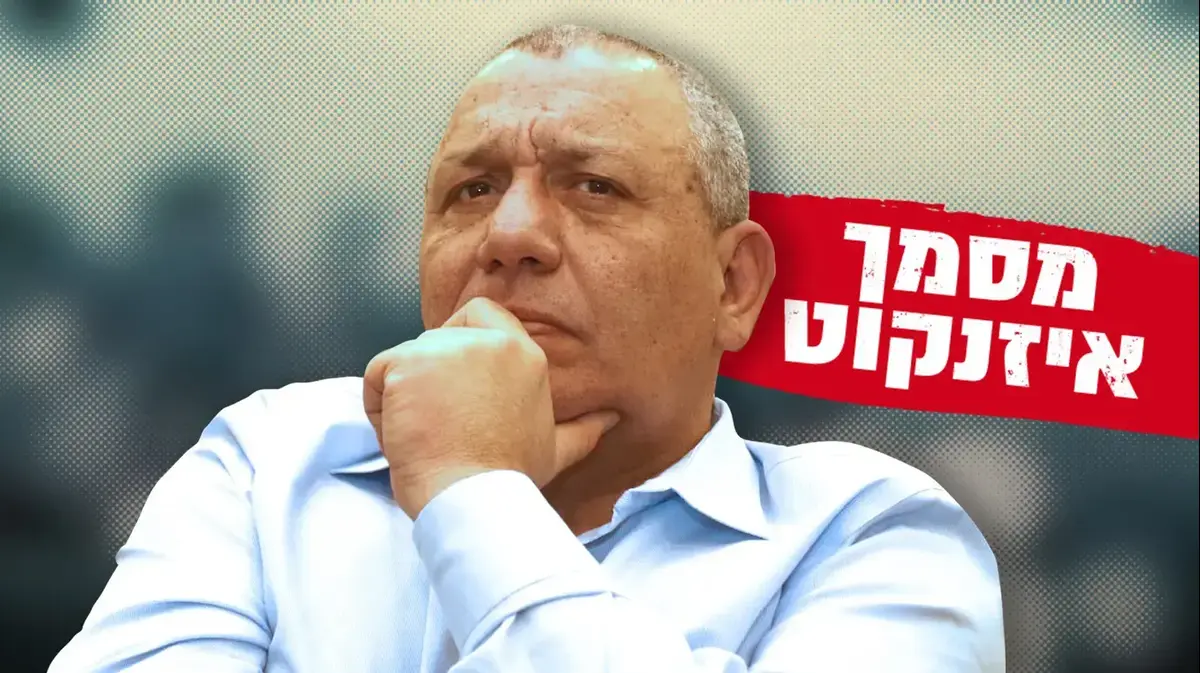
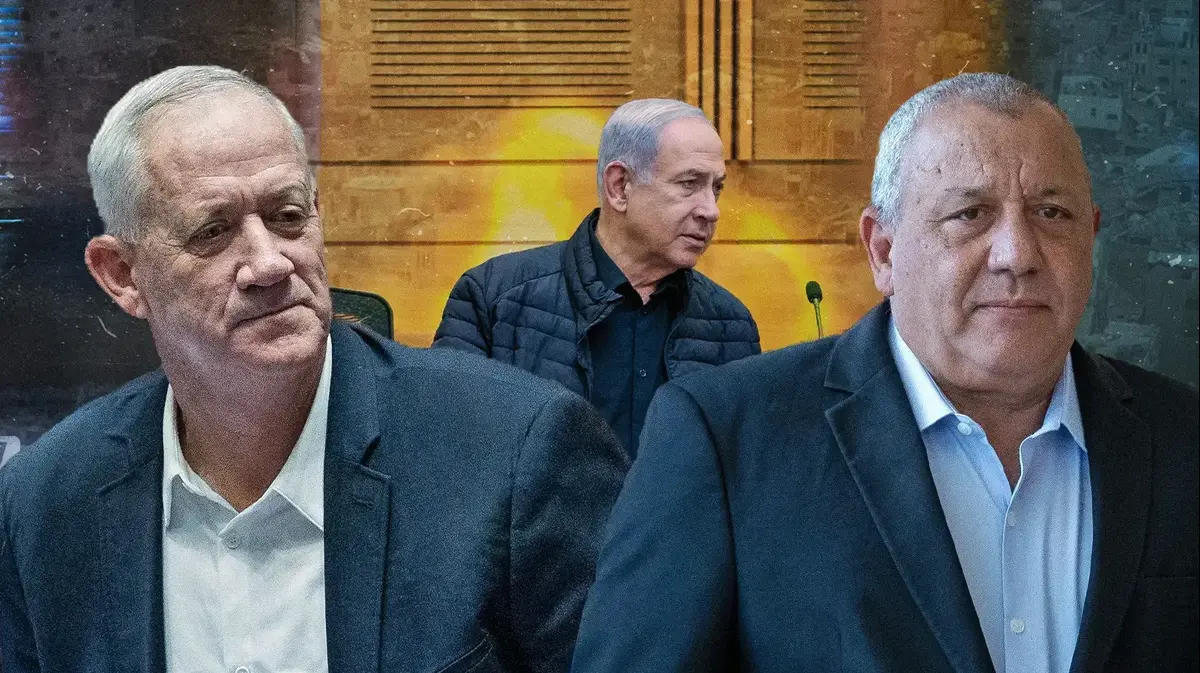
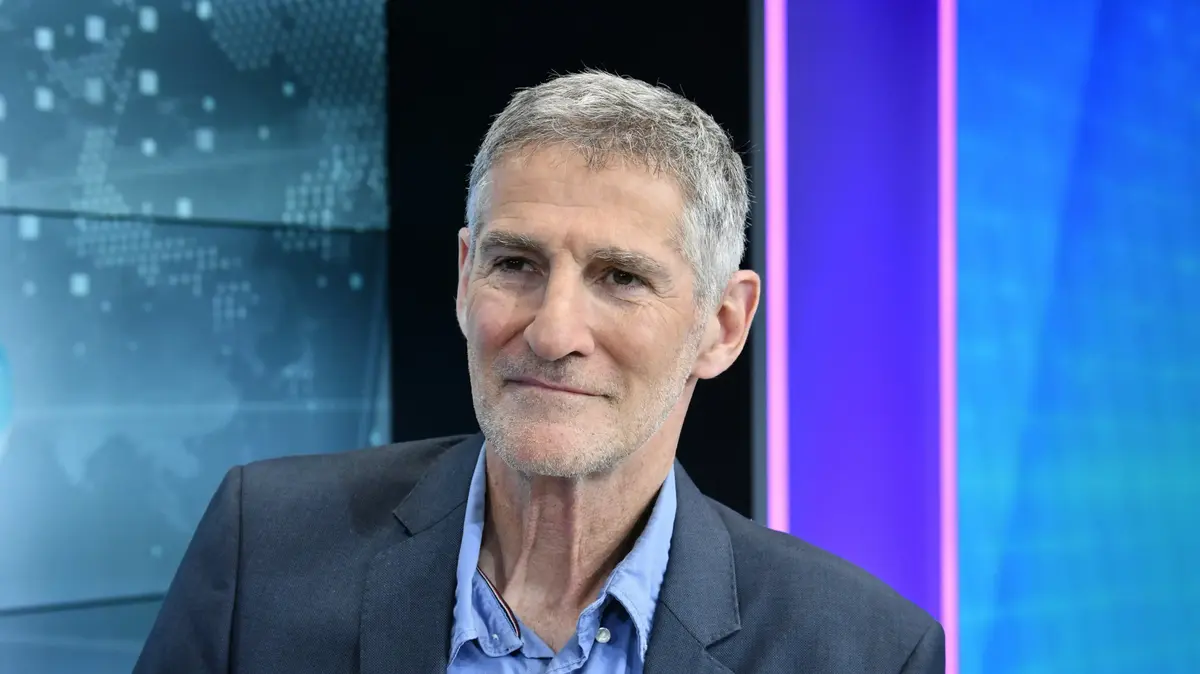
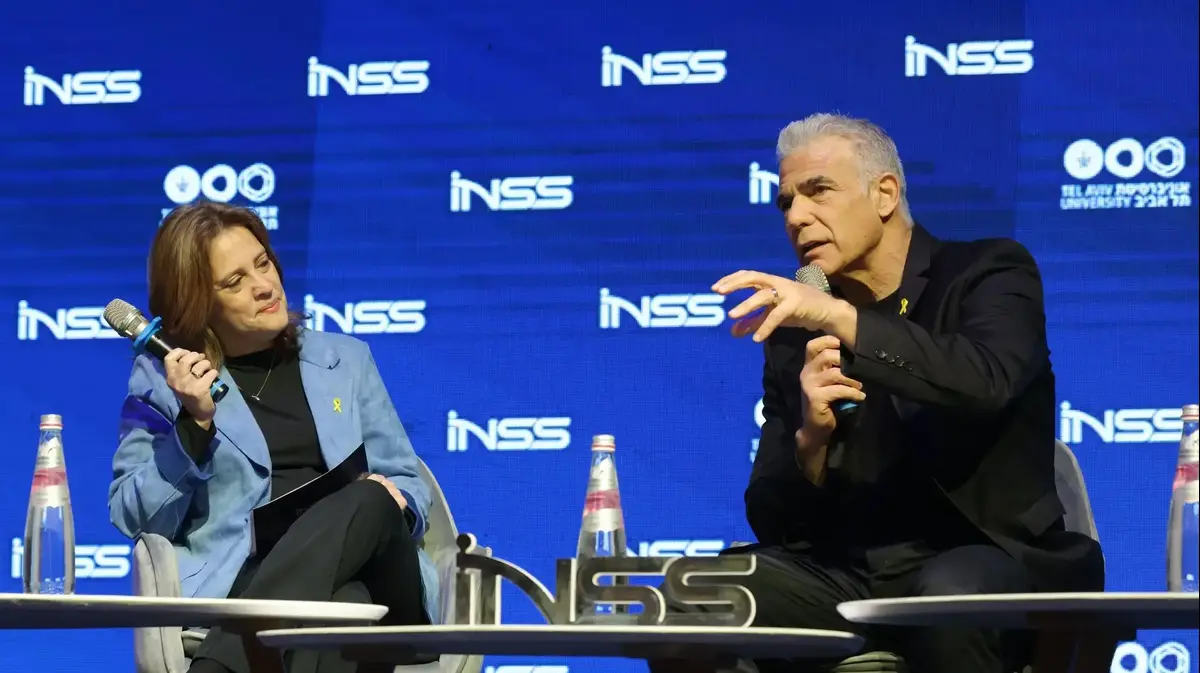
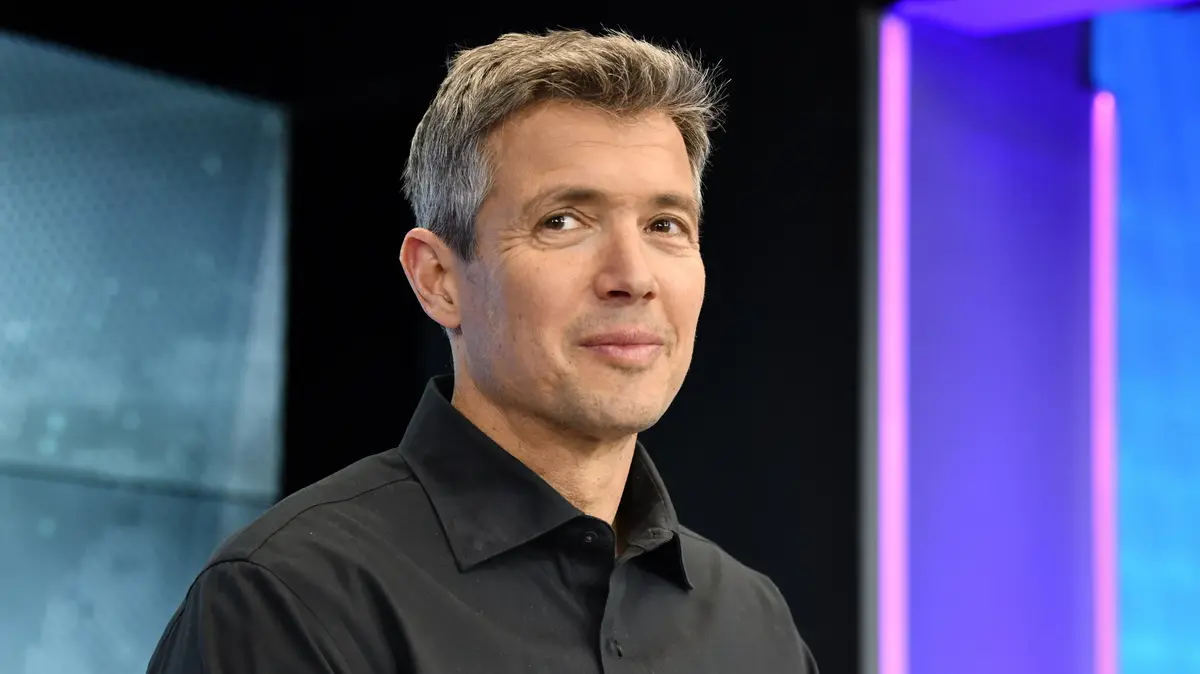
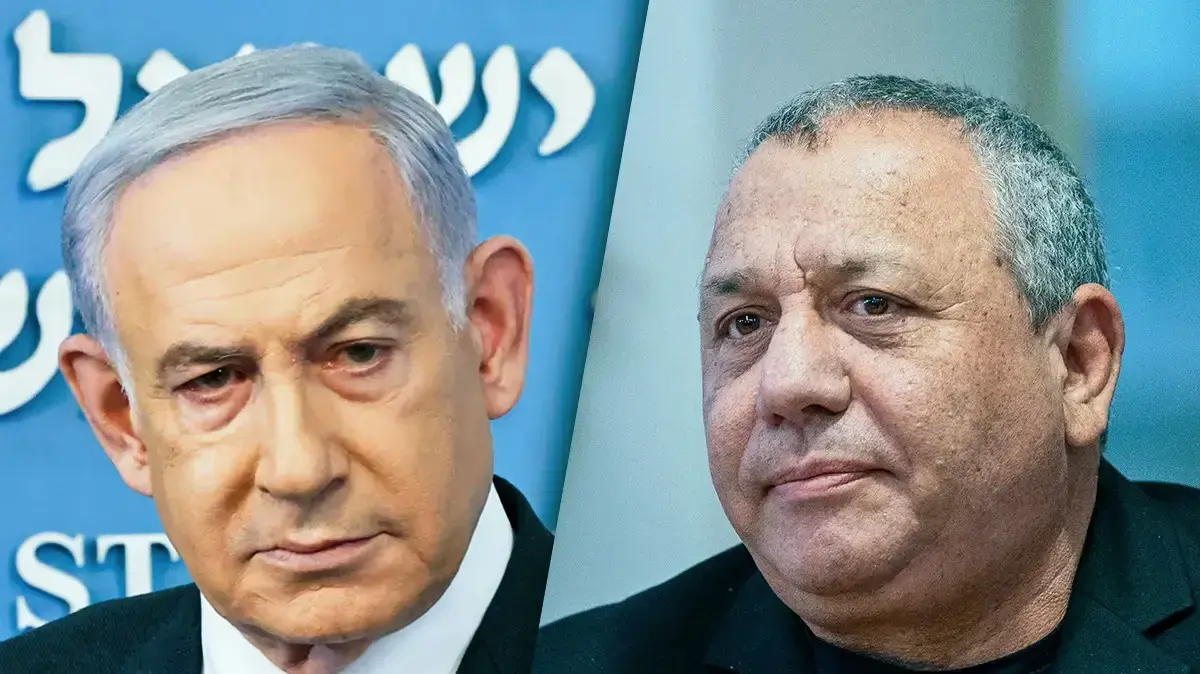
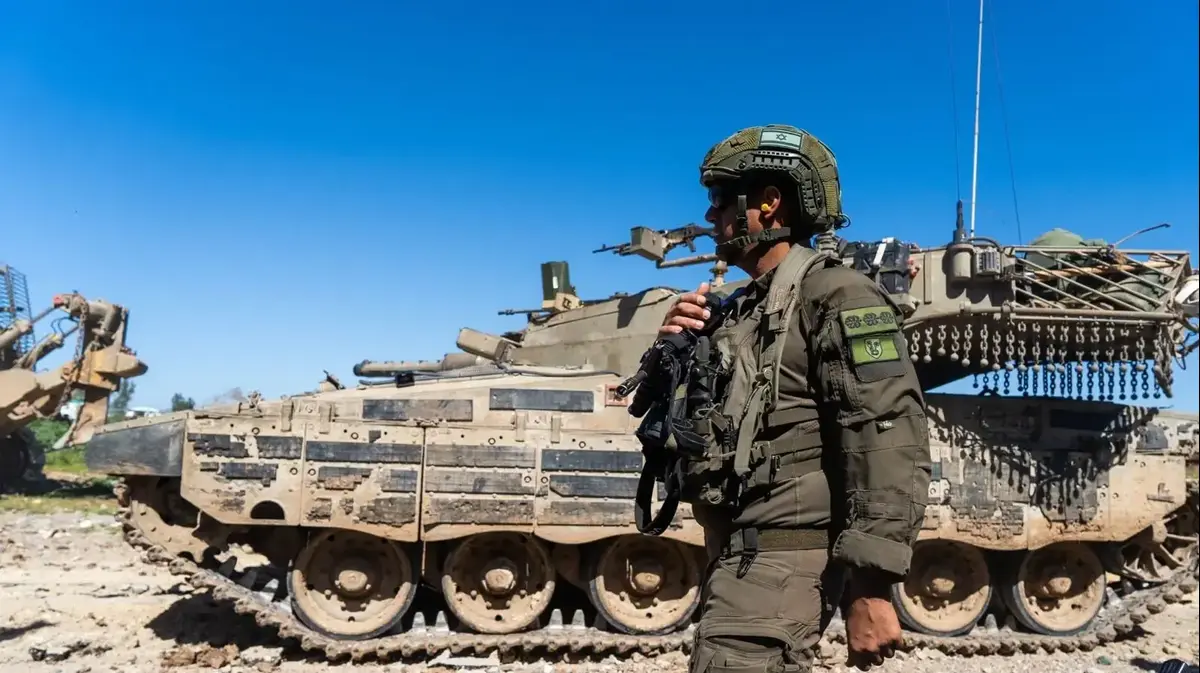
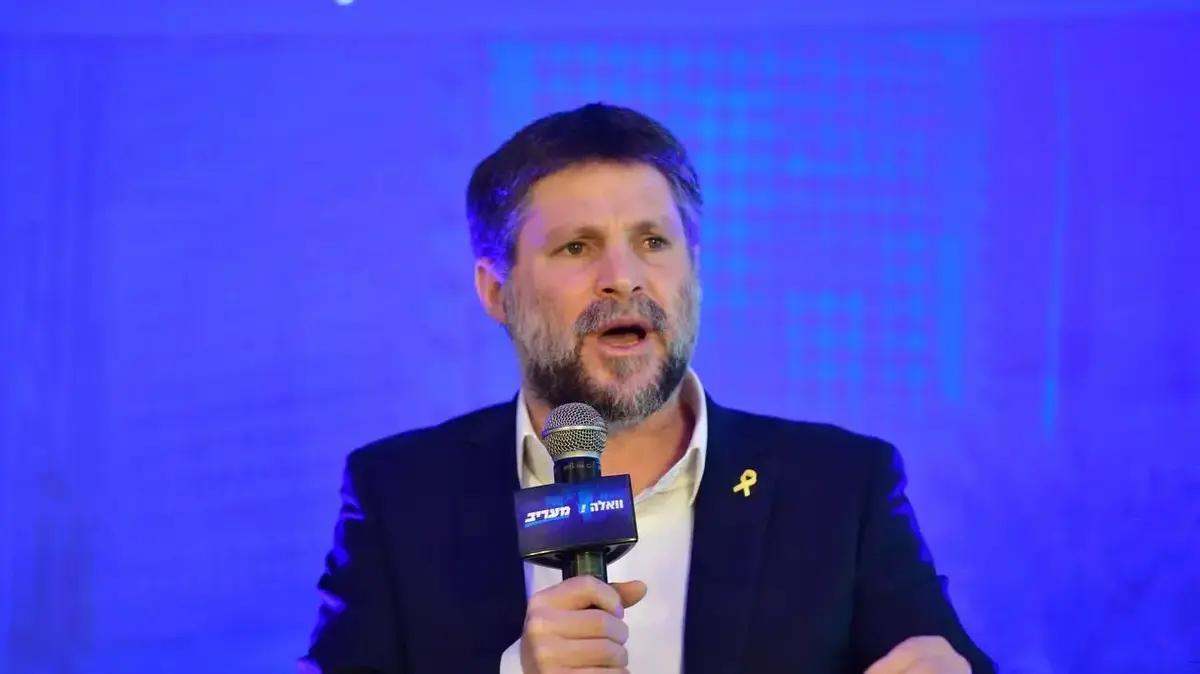
/cloudfront-eu-central-1.images.arcpublishing.com/prisa/VB2FZXRBEFBPNAN5IFP75J6YOM.jpg)





